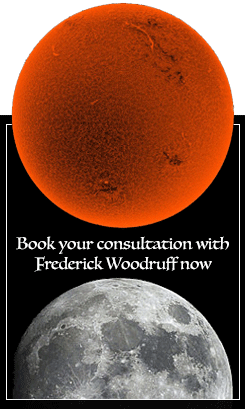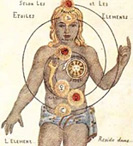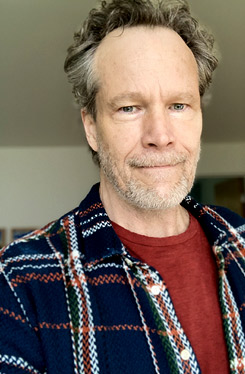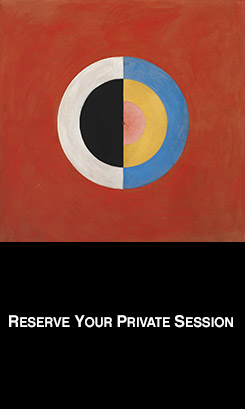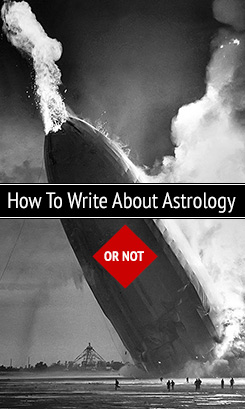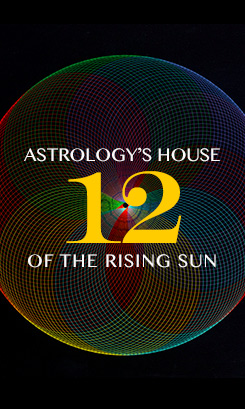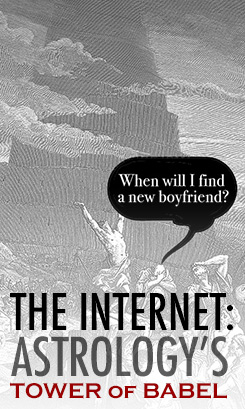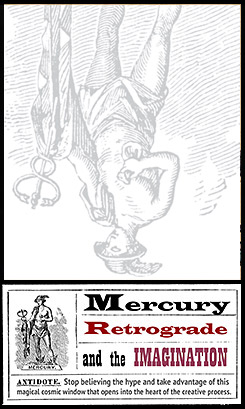A Facebook Facecrime and My New Book

When an author approaches the end of writing a book it’s not unusual for the unconscious to rebel and throw up roadblocks on the path to completion. I assume this is true for any artist serious about his or her long-term project. A day of reckoning always looms.
These rogue psychic forces are related to the process that accompanies severance. To end the creative flow is to relinquish control.
Worse, there will follow the book’s actual existence, after the fact; a harsh distinction between the fantasy that accompanied imagining the project and its materialization.
As Jung’s right-hand agent, Marie-Louise Von Franz noted: “People sometimes resist becoming creative because one’s would be creativeness is always so much more impressive … than the little egg one lays in the end when birth takes place!â€
And so, not surprisingly, as I’m starting to push my new book Astrology, Facebook and The Zombie Apocalypse into the final laps around the track, my nocturnal dreams — the great compensatory forces in life — have become more forceful and direct.
Some backstory:
Many years ago I took a job as a telephone psychic because I needed money. What started as a lark turned quickly into a kind of purgatory until I realized that I’d a rare opportunity to turn something grindingly tedious (and bizarre) into gold. I wrote and sold my book about my experiences to a mainstream publisher. And then later that same book became the fodder for an upcoming television series.
A success from one of the most peculiar moral problems I’d ever encountered in life; namely, speaking to people for four dollars a minute about their future when most of them had none. Meaning they were unemployed, in abusive relationships, dying of terminal diseases, or incarcerated — many in need of the fresh waters of psychological understanding — not New Age sewage.
And so I made a similar decision regarding my involvement with Facebook.
I would turn a dubious everyday experience (that had bloomed into a full-blown habit) into a creative project and at the same time gain immunity from the Facebook atmosphere by seeing my investment there as research. In other words another book.
It was probably two years ago that I knew something was wrong regarding the social network. And it wasn’t just related to Facebook’s privacy issues and personal data mining. It had more to do with one’s commodity of creative energy, the allotment each of us is given in life and how Facebook, given the opportunity, will usurp and capitalize on that reserve to its benefit.
I’ll say more about that:
A distance or disconnect from one’s creativite core generates — at the end of the day — anxiety. Monitoring Facebook through my waking hours meant a continual, sporadic snapping of the vector that kept me focused on my work, my task at hand. Over time I noticed that I’d become more devoted to distraction — which is another way of saying I was prolonging my “day of reckoning” Â — than with the various creative projects I was involved with.
In addition to persistence and focus, to create — rather than just passively consume — one needs an open-ended relationship to the world, where her aperture is set to its widest circumference, to take everything in — all views, all sides, all polarities — rather than winnowing back down upon oneself and the comfort and safety that insularity sustains.
And this winnowing down, shrinking and shrink wrapping, is promoted by Facebook tirelessly. Consider the network through a literal lens: Everything in Facebook’s design and user interface is teeny tiny; as if to say: “Keep yourself small, contained, digestible and predictable — agreeable and upbeat.” Dissident voices are not encouraged, not welcomed within your feed, and Facebook’s algorithms guarantee the seamless shield of your bubble. To court disagreement would create ruptures: Defriendings! This sort of control does not foster emotional maturity. It’s akin to being trapped in a Hallmark greeting card shop with the woman that owns and promotes its wares non-stop.
So over the years, regardless the enjoyment I derived by trawling and posting on the network, I felt like a conflicted trapeze artist who was always on the verge of leaving the circus. And then finally, in my troubled dream last week, my trapeze tether actually snapped and I was down. Back on earth. And that, right there, was the essence of my dream’s narrative: I was in a circus, Mark Zuckerberg was the ringleader, I was performing high wire acts and my lifeline snapped.
My unconscious had created a decisive event, by demonstrating, through dream speak, the fallout of ignoring my ongoing mistrust of the Zuckerberg-ian presence that haunts the timelines of his gated network. A most peculiar and denuded presence, which makes it all the more disturbing and suspect to the paranoid part of my nature. The writer Zadie Smith once described Zuckerberg’s presence, in Generation Why?, this way, from her memories of him back in their college days:
“The real Zuckerberg is much more like his website, on each page of which, once upon a time (2004), he emblazoned the legend: A Mark Zuckerberg Production. Controlled but dull, bright and clean but uniformly plain, nonideological, affectless.”
An android thing, in other words.
Stranger still, within my dream, was the sense that, somehow, by opposing the endless stream of cheerful, informative or expertly fashioned declarations on the Facebook newsfeed, I’d committed a Facecrime. I “heard” the word bouncing around in my head’s echo chamber right before I’d woken up. Dream analysts claim that when the dream’s narrative fractures — by waking us up — we’ve hit the gold zone — the most critical part of the dream’s communication.
In the morning I rummaged through my library for a copy of George Orwell‘s 1984 — as the word facecrime seemed a perfect fit for his dystopian hellhole’s newspeak. And sure enough, there it was: Facecrime!
Here’s how Orwell describes Facecrime in his book:
“It was terribly dangerous to let your thoughts wander when you were in any public place or within range of a telescreen. The smallest thing could give you away. A nervous tic, an unconscious look of anxiety, a habit of muttering to yourself — anything that carried with it the suggestion of abnormality, of having something to hide. In any case, to wear an improper expression on your face (to look incredulous when a victory was announced, for example) was itself a punishable offense. There was even a word for it in Newspeak: facecrime, it was called.”
Here is Mark Zuckerberg’s statement (often referred to as the Zuckerberg Doctrine) from 2010 about privacy and identity as related to the new modern world, which is to say, for anyone from Silicon Valley, the all and everything of Web 2.0:
“You have one identity…The days of you having a different image for your work friends or co-workers and for the other people you know are probably coming to an end pretty quickly…Having two identities for yourself is an example of a lack of integrity.â€
This is the philosophy of an android. A pancake-like concept of identity that could only be fostered by someone who is lodged (or lost) somewhere on the autism spectrum, where the mysterious Mercuriality of being a human being has been reduced to an algorithm blip that cross-references over to an IP number. Not surprisingly, Mark Zuckerberg’s natal horoscope shows a potent Mercury Pluto opposition. Mercury configurations such as this align with the chart’s owner making statements like this:
“What people want isn’t complete privacy. It isn’t that they want secrecy. It’s that they want control over what they share and what they don’t.â€
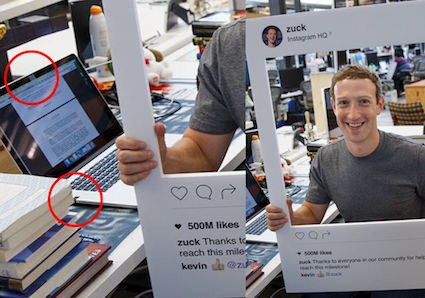
Which is a kookoo way for Zuckerberg to telegraph his intentions (and issues) about privacy and how he will or will not grant that to us on his network. It’s classic counter-transference gibberish. But important to pay attention to nonetheless.
Of course if you seek out private information about Zuckerberg on his Facebook page you will find none. In fact, he’s so phobic about his privacy he recently spent 30 million dollars to purchase every home in his neighborhood that was adjacent to his as he values control over any sort of social connection. A recent photo (above) that Zuckerberg posted online to celebrate his Instagram account unwittingly reveals that both the microphone and camera on his laptap are blacked out with tape.
Mercury Pluto oppositions often indicate a conflicted schism within the psyche, a kind of intellectual dyslexia. Humongous power urges struggle to find expression through the mind’s ability to set up systems and regulatory measures. Like the entirety of Hoover Dam powering a child’s transistor radio. Consider a quote from Zuckerberg’s New Yorker profile from some years back where he listed among his interests: Minimalism, revolutions, and “eliminating desire.†Commenting on this Zadie Smith wrote: “And of course if you’ve eliminated desire you’ve got nothing to hide, right?”
Writer Michael Zimmer says of this ‘control’ smokescreen:
The problem with Zuckerberg’s philosophy of privacy, of course, is that over Facebook’s 10-year history, users’ ability to control their information has largely decreased. Default settings lean toward making information public, and new advertising and third-party platforms are increasingly spreading users’ information beyond their direct control.
When that trapeze snapped in my Facebook circus dream, it was actually my years-long rationale that frayed; the lie that I would tell myself every time I logged into Facebook that, even though I was constantly thinking about deactivating the account (or deleting it entirely), it still was a benign pastime and part and parcel my life as someone who offered services to other individuals. And there’s some truth to this, as a good many of my new clients over the past five years have arrived via Facebook meetings.
More specifically Facebook Denial involved:
• Avoiding the fact that my personal data was being sleuthed and accrued and then put on the auction block for the highest data bidders to gain control over — to package, slice and dice as they deemed fit. After all, they purchased it and it was there’s to do with as they wished.
• Acknowledging that valuable chunks of time were being sucked down the Facebook rabbit hole. Moments become minutes become hours when tabulated at the end of the day. Time that might have been committed to creative work. Re-read that opening epigram from David Chaum, and think about it. “Privacy is intimately tied to creative potential.” Woe is me.
• Glossing over my longtime belief that social media requires the cultivation of artifice over actuality because as creatures with souls it’s unnatural to broadcast within a global network the very human conditions of ambiguity, ambivalence or anxiety. Disclosure of those conditions are for those closest to me; good friends, family, my therapist or spiritual teacher. But to approach any representation of those states, within the flickering flow of the Facebook newsfeed was a form of modern-day facecrime.
The above-noted conditions are normal and part and parcel the process of growth that we experience as creative beings. All of us are artists, writers, poets, makers, bakers, arrangers, organizers, tabulators — of some sort. And every creative act in life involves working with doubt, anxiety, apprehension, resistance, and the like. If you study old alchemical imagery you’ll discover there is always some sort of burning or extracting or compression at work. This is how conditions in life move from one state to another — but social media, of which there is way too fucking much of in our lives, would have you think and feel otherwise. With fussy precision, 98% of the posts we see on Facebook are designed to create a kind of picture or image that supports the creator’s ego ideals.
Ego ideals are the flip side of the inner critic, they are notions or thoughts we have about ourselves that we feel — if accomplished — will finally give us the satisfaction we crave in life. If I ‘appear’ this way then maybe it’s true. This kind of delusion is at the core of any sort of narcissistic disruption in the psyche.
I encountered this realization big time while reading a particular woman’s post on New Year’s day.
As I wrote in my own Facebook post:
“Odd. I just read someone’s omnibus of a post listing month-by-month his/her accomplishments, triumphs, achievements, goals reached and shattered — a celebrity-like nimbus reaching maximum wattage — throughout 2015. When I hit the end of the post — a chore — I realized I was reading someone’s cry for help. Another hybrid FB byproduct.”
From a recent NPR article:
“In the 1950s, the psychologist Leon Festinger popularized social-comparison theory. He argued that people have innate tendencies to track our progress and assess our self-worth by comparing ourselves to other people. That social comparison leads to feelings of insignificance and insecurity. Research has since found that making social comparisons, especially “upward†comparisons (to people we deem above us, to whom we feel inferior, for whatever reason) are associated with negative health outcomes like depressive symptoms and decreased self-esteem. Because Facebook tends to serve as an onslaught of idealized existences—babies, engagement rings, graduations, new jobs—it invites upward social comparison at a rate that can make “real life†feel like a modesty festival.”
All the billions that Facebook makes each year aren’t reinvested into figuring out ways to sell you the pair of shoes that you considered purchasing on another website last week. That’s chump change shit. The big money is invested into how to best manipulate emotions so as to best extract more and more personal data from the user. In Beeban Kidron‘s chilling documentary InRealLife (which you can watch for free here), journalist Cory Doctorow tells us:
“Facebook is best understood as a giant behaviorist casino designed at teaching you to undervalue your privacy. They can control how far your disclosure spreads, and they can predict where — if they spread it to these people and these people and bring it into their field of attention in the right way, that it will evince a response. So Facebook gets you a kind of lukewarm response to most of your disclosures and then randomly hands you a jackpot of a massive response to some of your disclosures and that intermittent reward is the most powerful conditioning force in the world.”
And then there’s the new Slave State thing: I was generating creative content for a corporation that makes billions of dollars and doesn’t pay me a penny. This new slave mentality is overtaking the checks and balances of the internet. A sharecropper condition (where you work for free for a billion dollar corporation in hopes of gaining ‘exposure’ from their aggregate of eyeballs; eyeballs being the new currency of Web 2.0 today) is becoming the default model for how creative types find exposure for their work online. And it’s really fucked up.
As Nicholas Carr, author of The Shallows, wrote about Web 2.0’s new sharecropping standard:
“By putting the means of production into the hands of the masses but withholding from those same masses any ownership over the product of their work, Web 2.0 provides an incredibly efficient mechanism to harvest the economic value of the free labor provided by the very many and concentrated into the hands of the very few.”
Fuck it. I’d rather have my own site be the locus of my creative output and monetize that content in my own way. I’ll continue to maintain a flat presence on Facebook, to promote the various projects I generate, but no more hours accrued (all wasted) generating posts and finding my life force sucked dry by the power of diversion. That’s my own fault of course, but it’s a huge difficulty for any creative type — we can all attest to this.
The battle to create and the persistence it takes to conquer sloth, drifting and distraction seems a luxurious dilemma, but really it isn’t. All artists (and that really means all of us because to be alive is to be — hopefully — creating something, adding to the culture, exchanging forces and ideas with other human beings — but not by working as a slave) can relate to this conundrum. Somewhere in the core of our hearts we realize that much of our sense of contentment depends on the quality of our creativity — in the end its a form of service, a divine thing.
OK, so here’s where I insert that famous T.S. Eliot line from Four Quartets:
“And the end of all our exploring. Will be to arrive where we started. And know the place for the first time.”
I’ve a feeling more and more folks are going to do what I’m doing today. Writers and artists will reclaim their efforts and return to more condensed, meaty output — on their own domains. Not necessarily longer posts (I hate reading long posts on the web), but less scattershot shit; more focused, engaging and personal sharing. We’ll see if I’m ahead of the curve again.
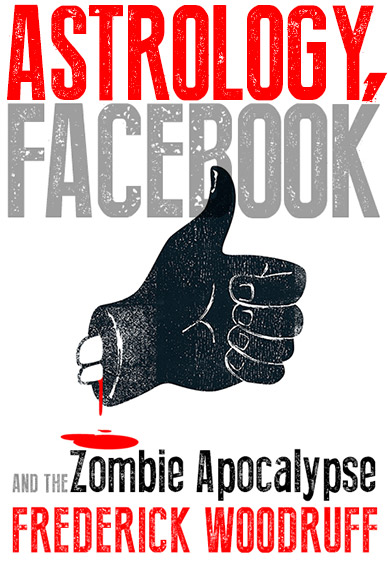
A word or four hundred about my book: What’s it about?
Well, it’s about Facebook and how Facebook has replaced what used to be the Internet. Most of us are now trapped within Zuckerberg’s gated community (this is especially true on mobile devices, where, once logged into Facebook you are never really allowed to leave, due the type of framing structure Facebook employs with outbound links from the network).
Here’s something fun to do, each time you check into Facebook with your phone’s app, imagine the narrative open to the old Outer Limits television series playing in your head:
“We are controlling transmission. If we wish to make it louder, we will bring up the volume. If we wish to make it softer, we will tune it to a whisper. You are about to participate in a great adventure. You are about to experience the awe and mystery which reaches from the inner mind to…” Mark Zuckerberg’s tape-covered laptop.
I’m self-publishing my book because astrology is not considered a “big seller” nowadays by publishers — and I approached all of the publishers that I felt would “get” the book. None did. Not understanding the link between astrology as a palliative to our technological malaise. I was told by several editors: “Oh, Facebook is only for older people and won’t be around much longer.”
This struck me as odd given the fact the young people mature and that Facebook is currently positioned to fold the other remaining billions of internet-less folks (in India and elsewhere) into its network. But, whatever, publishing itself is suffering the fallout from all things technological, so why publish something that’s title seems to promote the enemy.
Astrology is a refuge from out technological immersion. It’s as simple as that. You contemplate the sky above your head and you are free, or at least expanded out from the too-tight grip of your life that is closing in on you within the echo chamber of your social media cocoon.
Astrology returns us to wonder, to mystery, to silence, to contemplation, to listening instead of broadcasting and blabbing. Although, as I’ve written before, the internet has had a debilitating effect on astrology’s credibity and the interest that younger practitioners might feel towards the subject. As presented online, astrology is primarily a vanity tool. Of course, there has always been an element of this allure about astrology, driven by the age old questions: Who am I? What’s it all about? Where am I headed? But to have these questions answered by babbling narcissists (and possible meth addicts) on their Youtube channels does astrology an incredible disservice.
Astrology, at it’s simplest, represents an immersion with finer substances, finer influences than our hypnotic fascination with all things technological and the time our involvement devours from non-technological pursuits.
The fostering of presence takes time, takes commitment, assumes risk, and most importantly it requires being alone. Immersion in meditation, prayer, contemplation or other ‘spiritual’ practices that promote presence are essentially lonely past times, but necessary for the sanctity and sanity of the soul.
What is presence? It’s noticing one’s breath and heartbeat, hearing birds in the morning, making eye contact with fellow human beings, meeting someone at a party rather than swiping their image across a hookup app’s screen. Being awake instead of shuffling around from electronic device to electronic device, Tweeting deep thoughts or pictures of breakfast burritos.
The old and prescient Star Trek Voyager series had a chilling nemesis that revisited the show’s ship and crew repeatedly because the creature wasn’t a creature at all but an aggregate of various components of technology that created an indestructible floating hive mind-cube. This conglomerate was known as The Borg. For earthlings, locked into our grids and fiber optics — as zombie hosts — we’re recreating something similar to The Borg within our own cog-like techno culture. Tho, astrology is a way to discover how one is a cog in a much larger, boundless existence, that of the universe itself — which always bestows vitality and creativity because this is how the universe evolves and thrives — via love, not facsimiles of such.
Sign up for my newsletter for updates and the release date for
Astrology, Facebook and the Zombie Apocalypse.
